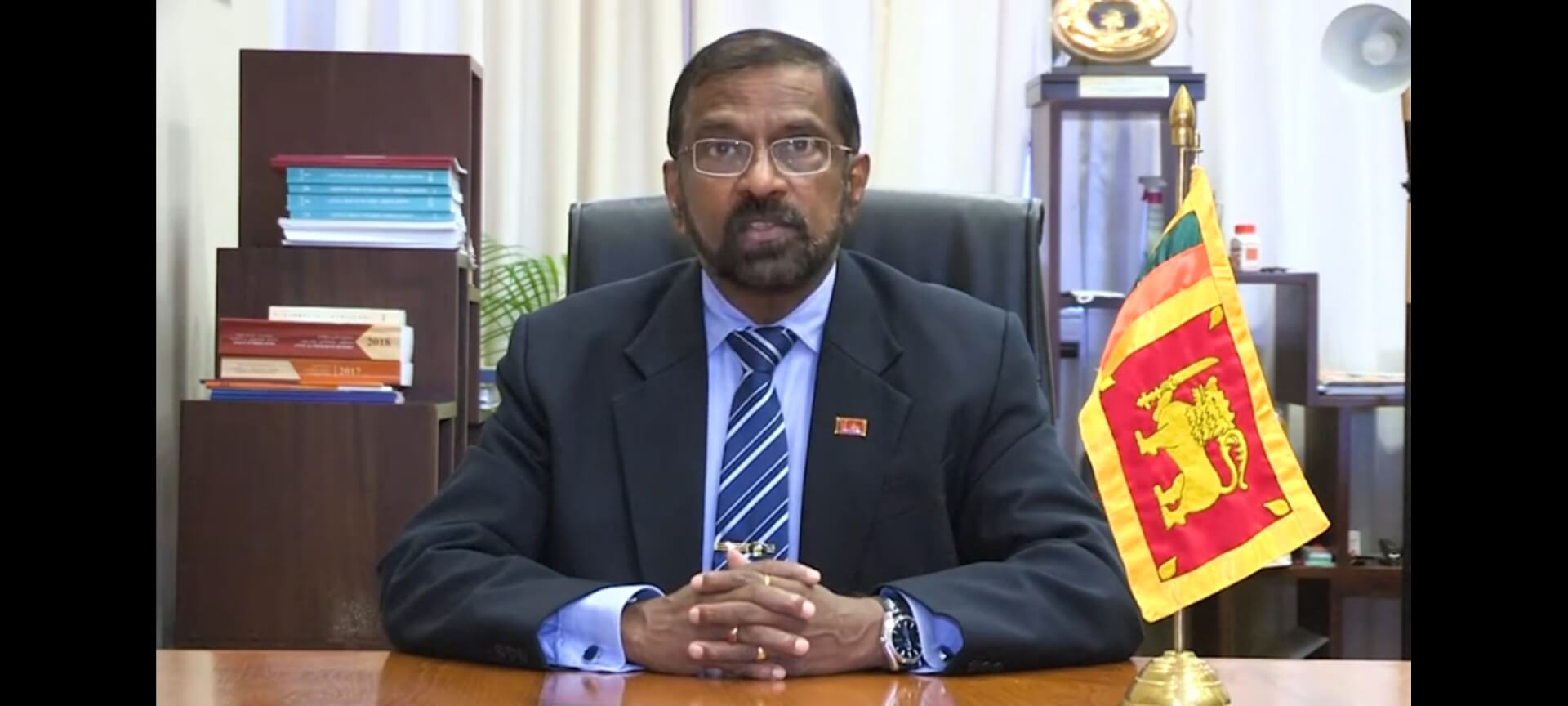On Tuesday, Sri Lankan Foreign Secretary Jayanath Colombage participated in an interview with CGTN, a Chinese state-run news outlet, during which he spoke of bilateral cooperation with China in a post-pandemic world, the Belt and Road Initiative (BRI), and the Xinjiang issue.
To begin with, Colombage updated the viewers about the COVID-19 situation in Sri Lanka. He celebrated the success achieved by the government in flattening the curve, adding that the island nation had only reported 200 cases in the past 24 hours. He also applauded the country’s authorities for maintaining a low death rate despite the widespread outbreak. In this regard, he appreciated the efforts taken by the government to ensure a successful vaccination drive, which he said had contributed to helping the country control the outbreak despite the onset of the third wave of infections.
However, the official also highlighted the adverse impact of the COVID-19 pandemic on the three main pillars of the Sri Lankan economy: exports, remittance, and tourism. Though Colombage noted that the first two were doing considerably well, he lamented that the tourism sector, which is a $5 billion industry that supports the livelihood of over three million people in the country, was severely affected by the pandemic. Nevertheless, he said that despite restrictions, the economy was steadily improving and that there is now predictable growth in the country’s GDP.
Speaking about China’s assistance in bringing back normalcy to Sri Lanka, Colombage celebrated the receipt of the 600,000 doses of the Sinopharm vaccine, which he referred to as the “great wall of vaccine”. He said that the China-produced drugs significantly supplemented Sri Lanka’s vaccination drive, which not only helped the citizens of Sri Lanka but also ensured inoculations for Chinese workers in the island nation. In this regard, the diplomat reiterated Colombo’s commitment to protecting the Chinese community in Sri Lanka and highlighted the government’s Spring Seat Operation, which is a campaign specifically aimed at administering the Sinopharm vaccine to the 200,000 Chinese workers in Sri Lanka who continue to be engaged in critical infrastructural and development projects.
Colombage further recognised China as Sri Lanka’s “number one development partner,” calling it a “source of strength” for Sri Lanka that helped it come out of the economic distress caused by the civil war that ended in 2009. He commended the development projects undertaken by Chinese companies and state-owned enterprises, along with the high-level defence cooperation between the two sides. Moreover, speaking on behalf of the Sri Lankan people at large, he said that Sri Lanka welcomes foreign direct investments from China, which is the largest investor in the island nation.
On the Chinese Belt and Road Initiative, the official termed it as the “biggest maritime infrastructure and maritime connectivity project” in the Indian Ocean. This project, Colombage said, would help Sri Lanka achieve its aspiration to emerge as a “maritime hub for South Asia and the maritime hub for the Indian Ocean region”. In addition, he dismissed the Western critics’ belief that the BRI is being used by China to further its “debt-trap diplomacy”. To advance this claim, he said that, as of 2019, Sri Lanka had a debt of around $57 billion, out of which less than $9 billion was owed to China. Nevertheless, he reiterated the Sri Lankan government’s decision to remain neutral in the geopolitical concerns of its neighbour India and the West and maintain friendly relations with countries across the globe.
Colombage also discussed the controversial issue of Xinjiang, which has been vociferously discussed by Western critics following reports of human rights abuses against the region’s Uighur Muslim community. He said that during his week-long visit to Xinjiang in 2019, he saw that it had witnessed incredible development through connectivity and other infrastructural projects. Further, he said that the region had not witnessed any “acts of terrorism” in over three years, which he believed to be a major achievement by the Chinese government. To this end, he urged Western nations to refrain from using sanctions to enforce their belief in “purely internal domestic matters of countries”, arguing that the impact of such measures is largely felt by the poorer communities of the nations.
Throughout the pandemic, Sri Lanka and China have cooperated in several arenas, which has solidified their growing friendship even further. In fact, on Monday, China signed off on a $500 million loan to Sri Lanka to assist the island nation with its post-pandemic recovery. This loan was a part of a $1 billion loan that Sri Lanka received from China last year, the first instalment of which was received in March 2020. Moreover, apart from the 600,000 doses of its locally produced vaccine, China has also supplied Sri Lanka with several other medical supplies, masks, and protective equipment to help the country bring an end to the pandemic. For China, cementing its influence in Sri Lanka is particularly critical in light of its Belt and Road Initiative, of which Sri Lanka forms a key part.

